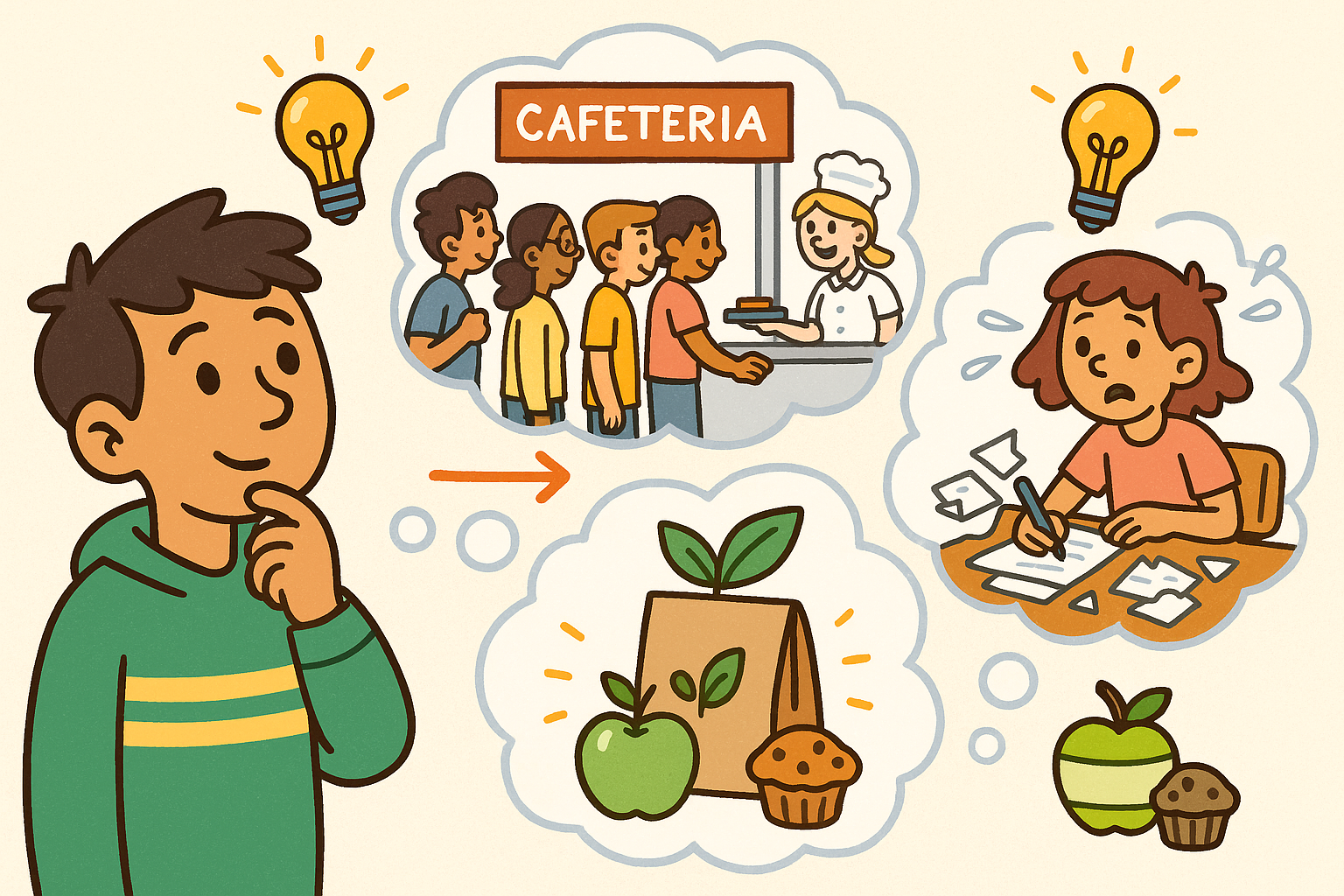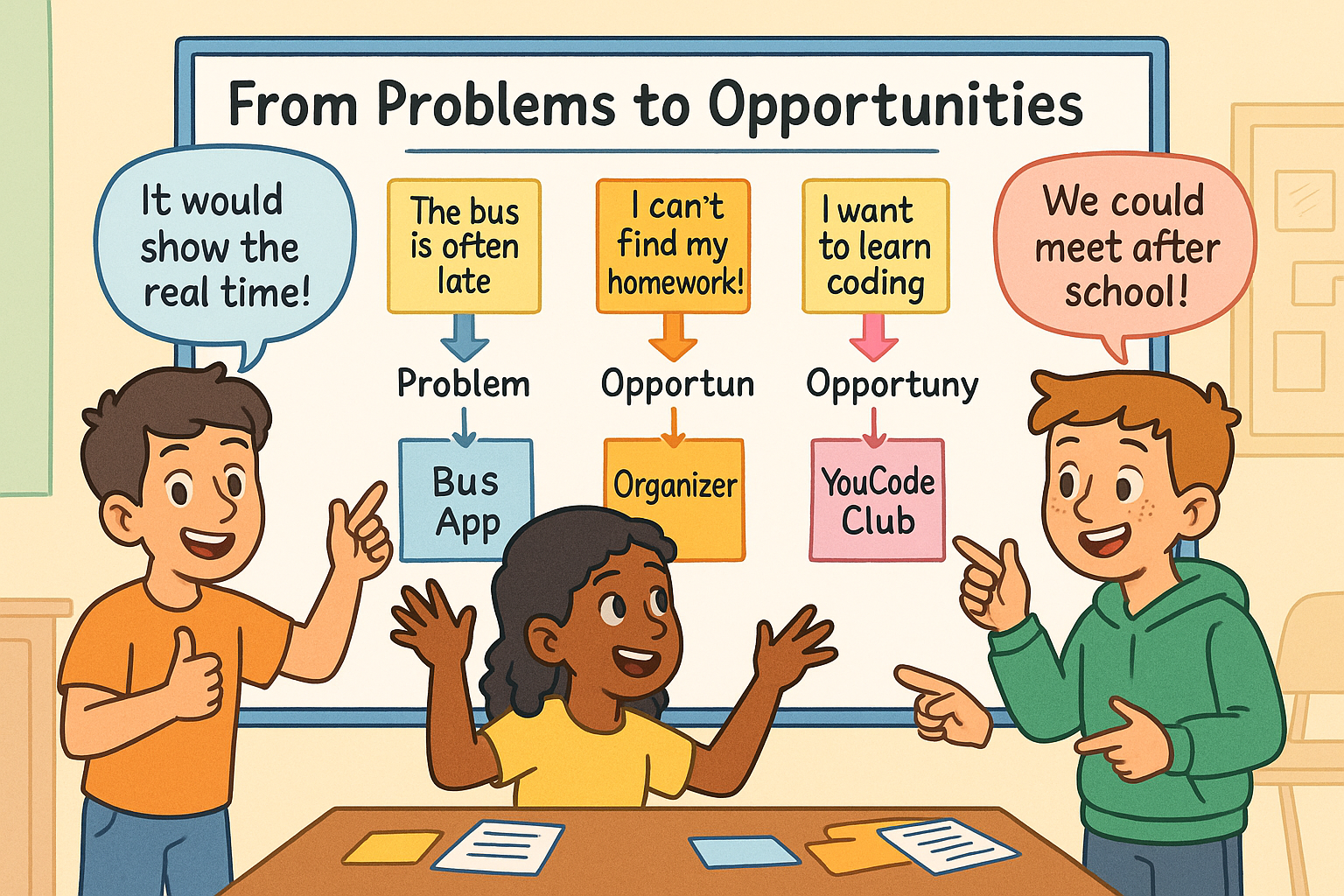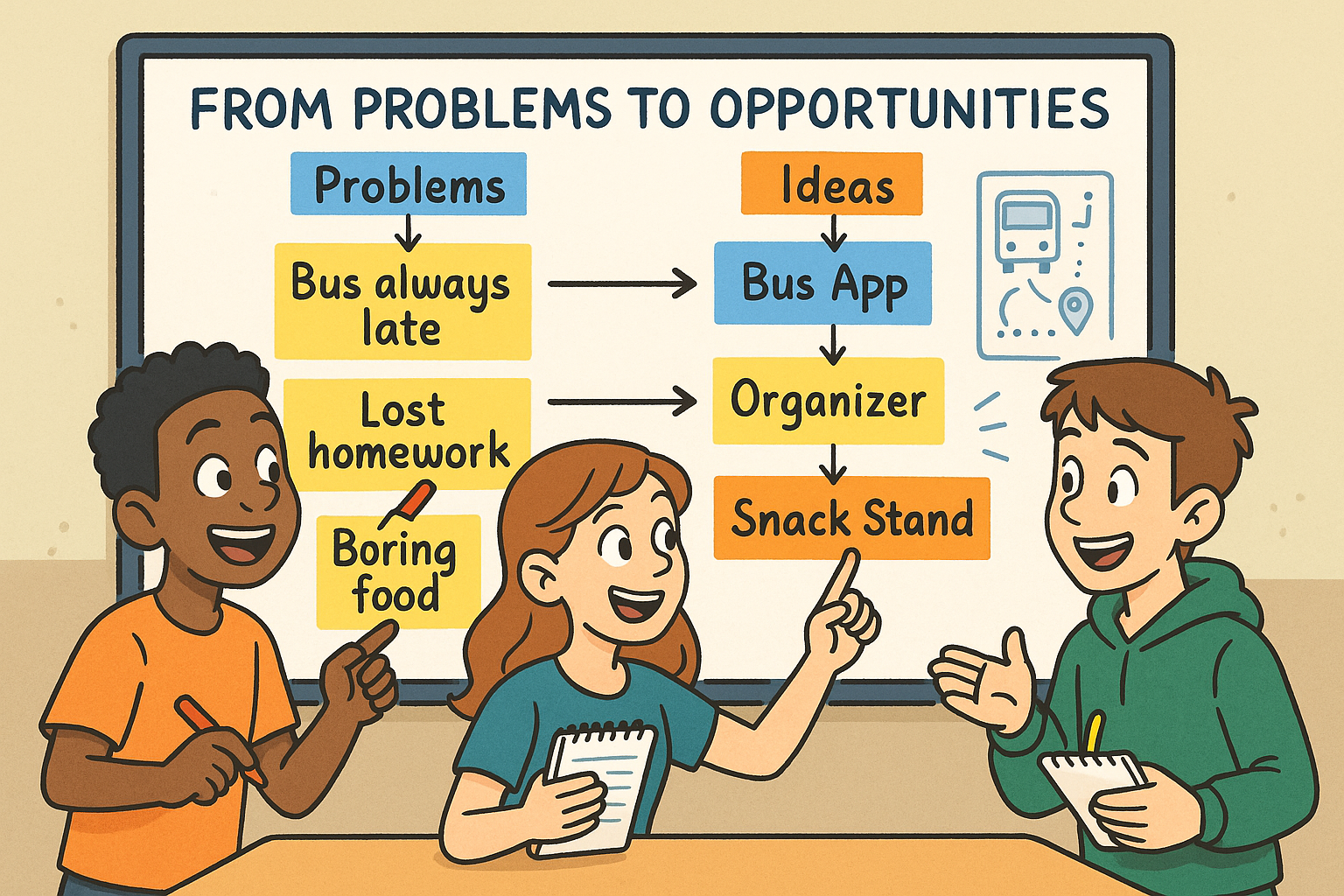💡 Week 1 – Idea Generation
Every business starts with a problem that needs solving.
Great entrepreneurs don’t wait for inspiration — they notice things that others ignore.
Think of this lesson as a game of curiosity.
You’ll look around, ask “why,” and slowly connect dots that could become your first business idea.
🔍 Step 1 – Start with Problems, Not Ideas
When you look at your school, city, or even your daily routine — what feels inconvenient?
- Long lunch lines?
- Students losing their homework?
- People wanting eco-friendly snacks but not finding them?
Each frustration is a seed of opportunity.

Every problem hides a potential idea — entrepreneurs simply look closer.
🧠 Step 2 – Ask ‘Why’ and ‘What If’
Good ideas are built by asking simple questions:
- Why does this problem exist?
- What if we could make it easier, faster, or cheaper?
Example:
The lunch line is long.
Why? Only one register.
What if students could pre-order lunch in the morning?
Boom — that’s a business idea forming.
🎨 Step 3 – Sketch Your Idea
Don’t overthink — draw or jot down how your solution works.
Even simple doodles help your brain imagine possibilities.

Early ideas look messy — that’s good! Creativity grows from rough sketches.
🧩 Step 4 – Combine Your Skills and Interests
Ideas work best when they fit you.
Ask yourself:
- What do I enjoy doing?
- What am I already good at?
- Who could benefit from it?
If you love art — maybe custom stickers or T-shirt prints.
If you enjoy coding — a mini-app for your classmates.
If you like helping others — an after-school tutoring club.
That’s your personal advantage.
🚀 Step 5 – Test Your Excitement
The best ideas make you say: “I’d actually try that!”
If it sounds boring, others will feel the same.
Ask two friends:
“Would you use this? Why or why not?”
Note their honest feedback.
You’ll refine your idea later during Market Research Week.

Sharing early ideas helps you spot what excites others — and what needs work.
✅ Mini Challenge
Pick one of your ideas and give it a name.
Try a short line like:
“QuickLunch — pre-order your school meal in one tap.”
That’s your first elevator pitch.
🧭 What’s Next
In the next lesson, we’ll validate your idea:
find out if real people need it, and how to check competitors.
👉 Continue to Market Research →
📝 Try this today
Observe your school or neighborhood today and list 3 small problems people face.
For each problem, write one creative or fun solution — no judging, just ideas!
Choose your favorite idea and write one sentence describing it to a friend.
Lesson Progress
Module: entrepreneurship · +0% upon completion